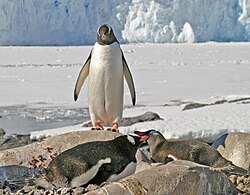Headlines:Animal News
Latest headlines
- Congress Passes Bill to Expand Gray Wolf Hunting and Trapping: Advocates Rally for Conservation Efforts
- Jet2holidays and easyJet Holidays Take a Stand for Animal Welfare
- Deepwater Sharks and Rays Face Rising Extinction Risk (Mar 8 2024)
- Online Trade in Live Cheetahs Exposed by TRAFFIC Report
- Beagle Freedom Project Achieves Historic Closure of Animal Testing Lab, Transforms Site into Sanctuary for Rescued Animals
Congress Passes Bill to Expand Gray Wolf Hunting and Trapping: Advocates Rally for Conservation Efforts

USA: May 7, 2024 – Amidst heated debate, the U.S. House of Representatives has voted on a bill with profound implications for gray wolf conservation. Todd Richmond's Associated Press report reveals that the bill to remove gray wolves from the endangered species list across the lower 48 states has passed, igniting discussions on wildlife preservation.
Led by Rep. Lauren Boebert, Congress deliberated on HR 764, signaling potential shifts in gray wolf management strategies nationwide. The bill's passage raises concerns over the future of gray wolves, with fears of widespread hunting and trapping echoing broader conflicts within environmental policy.
Jet2holidays and easyJet Holidays Take a Stand for Animal Welfare
Deepwater Sharks and Rays Face Rising Extinction Risk

In a study spanning eight years, researchers have unveiled alarming findings regarding the fate of deepwater sharks and rays. The study, published in Science, underscores a dire reality: one in seven species of deepwater sharks and rays faces a heightened risk of extinction due to overfishing and commercial exploitation.
Online Trade in Live Cheetahs Exposed by TRAFFIC Report

A new report by TRAFFIC, a non-governmental organisation working on wildlife trade issues, reveals the extent and impact of the online trade in live cheetahs, which are classified as Vulnerable by the IUCN Red List. The report is based on a six-month survey that found evidence of online trade in live cheetahs or display of live cheetahs as pets, using various platforms and languages.
According to the report, the online trade in live cheetahs poses a serious threat to the conservation of the species, which has an estimated 6,500 mature individuals remaining in the wild.
Beagle Freedom Project Achieves Historic Closure of Animal Testing Lab, Transforms Site into Sanctuary for Rescued Animals

USA, Feb 15, 2024 - In a landmark move, the Beagle Freedom Project has successfully shut down one-third of the flea and tick product testing industry, putting an end to decades of cruel experimentation. This closure, announced on February 14th, marks a significant victory in animal welfare, sparing thousands of dogs and cats from future testing and purposeful breeding.
The Beagle Freedom Project has acquired the 30-acre property and facilities in Nowata, Oklahoma, where animals were previously subjected to testing. This site is being transformed into Freedom Fields, a sanctuary dedicated to the rescue, rehabilitation, and adoption of animals previously use
Government Proposes Ban on Keeping Pet Primates in the UK

The UK government has unveiled a draft statutory instrument under the Animal Welfare Act 2006, aimed at implementing a licensing scheme to ensure the highest welfare standards for primates in England. This initiative is intended to effectively terminate the practice of keeping primates as pets within domestic settings.
The proposed regulations come in response to growing concerns over the welfare of pet primates across the country. According to a report by the RSPCA, there are approximately 5,000 pet primates in the UK, with marmosets being the most commonly kept species, followed by capuchins, tamarins, and squirrel monkeys.
NOAA reports 17 right whale calf sightings in 2023-2024 season to date

In a critical update on the plight of North Atlantic right whales, NOAA has underscored the vital importance of every female whale and calf in the species' recovery efforts. So far this calving season, a total of 17 calves have been identified, marking a significant development in the ongoing conservation efforts.
The situation for North Atlantic right whales remains dire, with the species facing a grave threat of extinction due to human-induced factors. There are approximately 360 individuals remaining, including fewer than 70 reproductively active females. With so few of these whales left, researchers closely monitor the Southeast for new offspring during the annual right whale calving season.
Jumbo Exhibition in Bengaluru: A Life-Sized Pledge for Human-Wildlife Harmony

An extraordinary exhibition promoting coexistence between humans and wildlife has arrived in Bengaluru. The "Jumbo Exhibition on Coexistence" features 100 life-sized elephant sculptures made from lantana, a notorious invasive plant species. These sculptures, unveiled as part of the event, highlight the pressing issue of man-animal conflict in the region.
The exhibition, which runs until March 3, showcases lantana elephants placed strategically across the city, including near government buildings.
International Study Reveals Discrepancies in Animal Welfare Regulations for Live Transport Across Five Nations

A collaborative effort by researchers from Canada, France, and the UK has scrutinized the regulations governing the transportation of live farm animals in five Western English-speaking countries. Published in the esteemed journal Royal Society Open Science, the study assessed the regulatory frameworks in Australia, Canada, New Zealand, the European Union, and the United States.
The comprehensive analysis identified four primary risk factors affecting animal welfare during transport: fitness for transport, journey duration, climatic conditions, and space allowances.
Galápagos Penguins Face Microplastic Crisis, Urgent Action Needed

A recent study published in PLoS ONE reveals alarming levels of microplastic pollution threatening the Galápagos penguin ecosystem. Titled "Understanding Microplastic Impact on Galápagos Penguins," the research warns of a serious risk to the unique wildlife of the Galápagos Islands.
Researchers used advanced models to study how microplastics accumulate and magnify in the Galápagos penguin food web.

The Royal Navy’s ice patrol ship HMS Protector is conducting a scientific mission in the Antarctic, where it is taking measures to prevent the spread of avian flu among the penguin colonies. The ship is working with researchers from the University of Portsmouth, the Animal and Plant Health Agency, and the Oceanites penguin-monitoring programme to collect and analyse samples from various penguin species.
